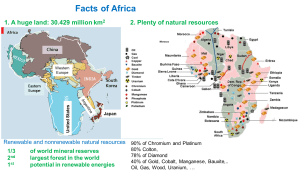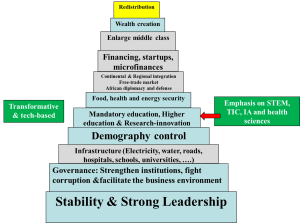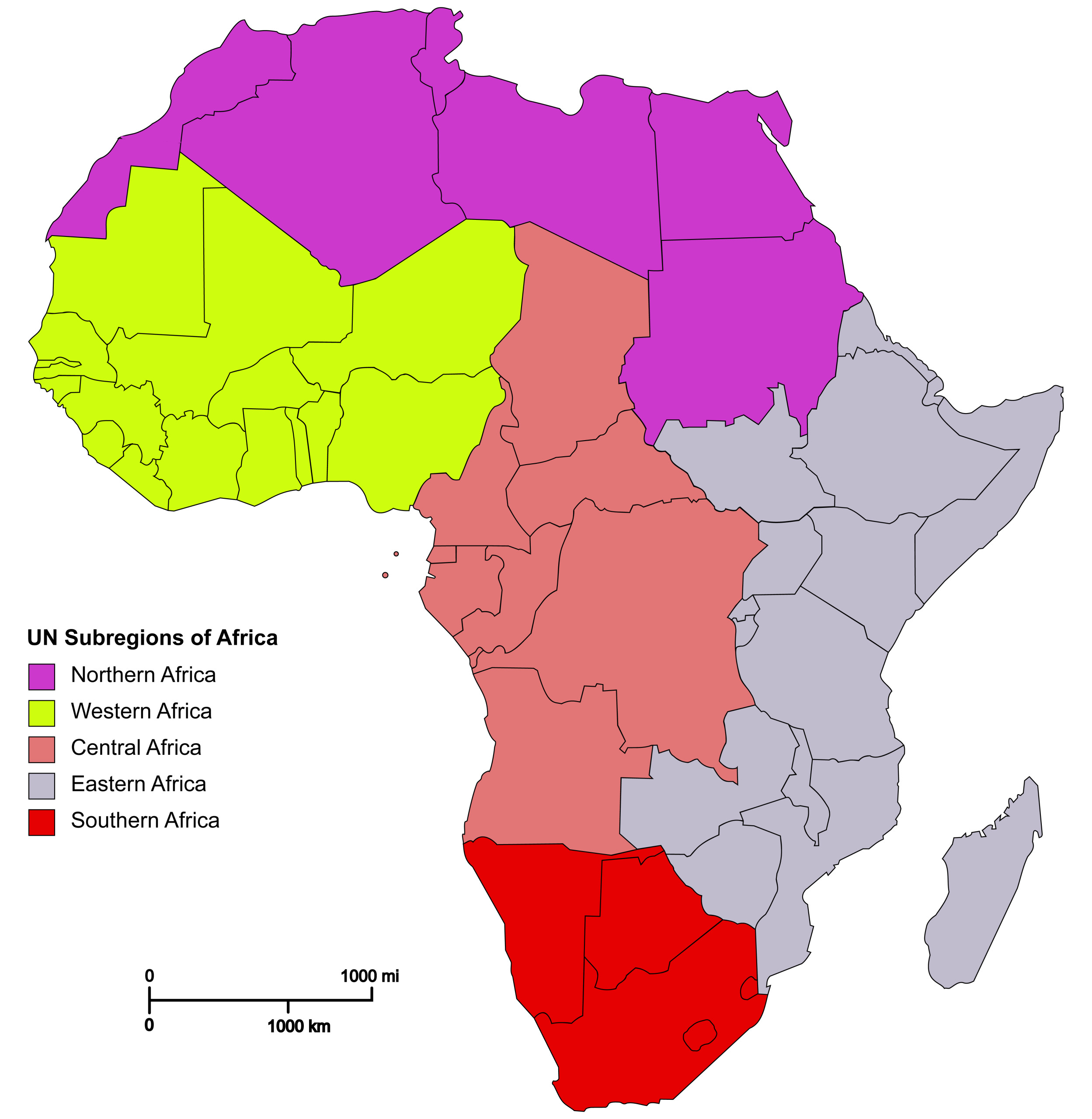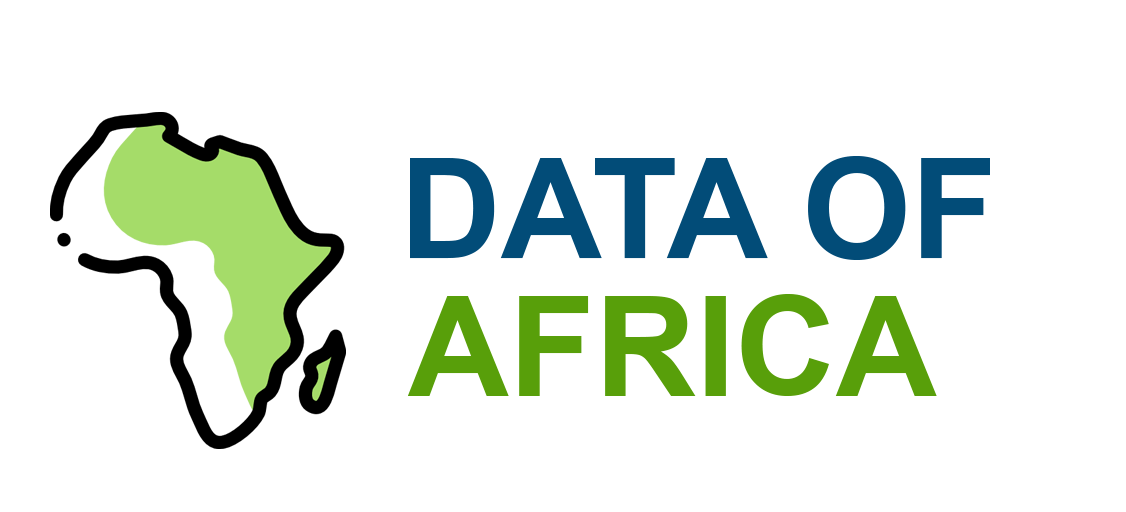AFRICA : FACTS, CHALLENGES AND PROSPECTS
Preamble
Africa stands out from other continents by its particular context marked by the following main characteristics :
- Very heterogeneous continent (United Nations: 54 countries)
- Recent independence acquired barely 60-70 years ago
- Border issues resulting from colonization
- Slavery, occupation and loss of self-confidence
- Some infrastructure but few qualified human resources (illiteracy)
- The values of the Economy belong mainly to Europe
- Some countries have no sovereignty over their currency
- Development assistance programs
- Standing in assisted posture
- Cycle of political instabilities, conflicts and bad governance
The last 20 years have seen significant growth, much better governance and human resources, but inclusive and distributive economies remain necessary.
A new era is dawning for Africa but several challenges must be met.
Africa’s challenges
- Better take advantage of abundant natural resources
- Control demography
- Develop its infrastructure and generalize access to electricity and drinking water
- Develop a better health system
- Boost its economy
- Better investment in education, science, and technology
Facts by data

Average age in 2022 :
- 18.8 in Africa
- 30.1 in the rest of the world
- 42.4 in Europe
- UN. Source: Statista (2022)
Threat
Diseases and devastating epidemics persist :
- Ebola
- HIV/AIDS
- Malaria
- Tuberculosis
- Meningitis
An increase in non-communicable diseases :
- Cardiovascular
- Cancers
African economies are not diversified
Very strong dependence on natural resources : 50-93%
Only four countries have an economic diversification index higher than the world average
1. South Africa
2. Egypt
3. Morocco
4. TunisiaSource: United Nations African Development Report (2022)
Threats and challenges for development
Economic challenges :
- The stability of countries is obligatory (no development without stability)
- Only a fifth of Africans work in a wage economy.
- Significant informal sector (must be included in the formal sector)
- 80% of the African economy is agrarian (need for industry)
- Infrastructure (roads, schools & universities, hospitals, etc.)
- Access to electricity and drinking water…)
- Translate growth into poverty reduction and improved well-being of the population
- Demographic control
- Change: from the extractive economy to a transformative economy
- The economy must be oriented towards local needs
- Regional and continental integration
Two major priorities :
1. Investing in its Youth (Education/Science) and its Infrastructure
2. Improve its Governance
10 scientific challenges for development
1. New resilient agriculture (combining AI, biotechnology and agriculture)
2. Food industry
3. Fertilizers (South-South collaboration)
4. Health Sciences
5. Water-energy-agriculture link
6. Water management and desalination combined with solar energy
7. Industry (Chemistry, Metallurgy, Mechanics, Electrical, IT, etc.)
8. Health economics (Medicine…)
9. Transforming the extractive economy into value-added products
10. Need for an African strategy for IT, AI, cybersecurity and defense
ASRIC : Must be given the necessary means to fully play its role as lever and engine to stimulate STI and STEM in Africa
Some perspectives
- African Continental Free Trade Area (AfCFTA)
- Great Green Wall Initiative
- African Union’s Agenda 2063
- Africa Renewable Energy Initiative (AREI)
- African Development Bank’s High 5 Agenda
- Blue Economy
- African Pharmaceutical Industry Development
- African Union’s Peace and Security Architecture
Conclusion
- Africans must believe in their abilities and rely on themselves
- Investing in HR (Youth)
- Investing in infrastructure, education and research-innovation
- Technological sovereignty (vaccines, drugs, medical devices, food safety, AI, water, energy, industry & new technologies, etc.)
- Shifting to a transformative economy
- Intra-African geopolitical and economic integration (coordinated efforts in the areas of economy, geopolitics, diplomacy and defense).
- Diversify international partnerships, but watch out for predators
- Better governance and inclusive development (Women, youth, remote areas) and distribution of wealth

Cartes de l'Afrique

